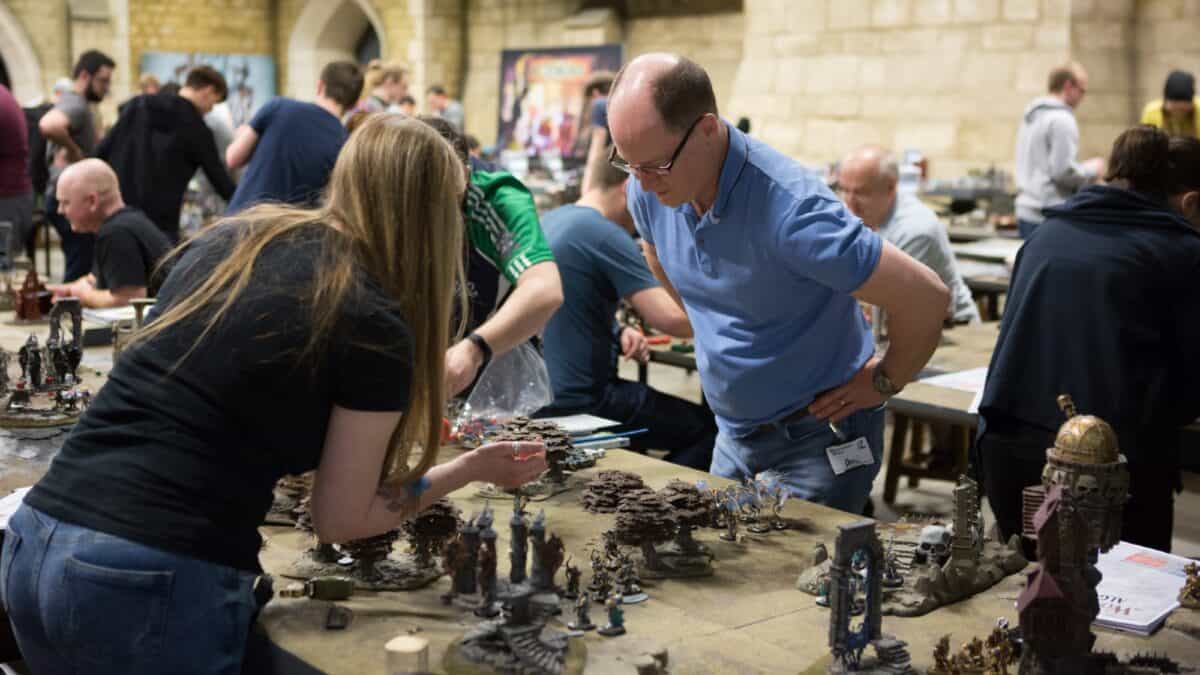Games Workshop (LSE:GAW) is one of the entertainment staples of fantasy fans globally. I think it’s also a fantastic FTSE 250 investment. It has strong margins, good return on investments and stellar long-term revenue growth.
I currently own the shares, and I reckon I could get wealthier by owning them for life.
The strengths
Games Workshop manufactures in Britain but ships internationally, giving me a healthy dose of geographic diversification.
As margins are one of my favourite indicators of organisational efficiency, Games Workshop’s performance on margins is a pleasant sight to see.
Gross margins are currently 68%, and net margins are 28%. The company’s net margins are ranked better than 92% of 823 companies in the travel and leisure industry.
Its return on invested capital has been trending up long term, even though in the past five years has seen a downtrend. I see that as a signal that its long-term efficiency growth is slowing, although it’s not at a worrying level. In 2018 the return-on-invested-capital percentage was 99.6%, today it’s 61%.
And of course, I want revenue growth. The all-time revenue trend is up and continues to be so even on a short-term basis. Revenue in 2008 was £110m. In 2023 it’s £471m.
Valuation risks ahead
Because of its many qualities, I don’t see evidence Games Workshop is overvalued. However, the company is perhaps weakest on some valuation measures.
For that reason, I identified valuation as a potential risk to be aware of when I first considered investing in the shares.
The company has a very poor price-to-tangible-book value of 15. Some 662 companies in the travel and leisure industry compared bring an industry mean of 2 to the table. That creates an element of uncertainty for my investment when analysing the business on tangible asset values related to the firm’s balance sheet. Yet I’m happy paying 15 times the tangible book value for companies with strong brand power, which Games Workshop certainly has.
The price-to-earnings (P/E) ratio is also high at 24 compared to an average for the FTSE 250 of almost 11, according to Vanguard.
So why do I see positives in the valuation of Games Workshop?
I’ve examined it through a discounted cash flow analysis, which estimates the value of a company based on future growth estimates discounted back to present-day value. I prefer to use earnings per share without non-recurring items for my growth rates, which are currently £4. When using a yearly discount rate of 11%, a yearly growth rate of 20% for a 10-year growth stage, and a yearly 4% growth rate for a further 10-year ‘terminal’ stage, I get a fair value of £128.
The current share price is around £104, which provides a significant margin of safety of around 18% for my investment. That’s not to say it will ever reach that higher price, of course.
My verdict
I’m a new shareholder. I bought the shares because I fundamentally believe in the vision, strategy and ethos of the company and I like that it provides people with harmless, fantasy fun.
I’m blown away by some of the metrics and I’m convinced that the company could continue to grow for some time yet.
I can see myself owning Games Workshop shares as a long-term investment, even for my whole life, if possible.








